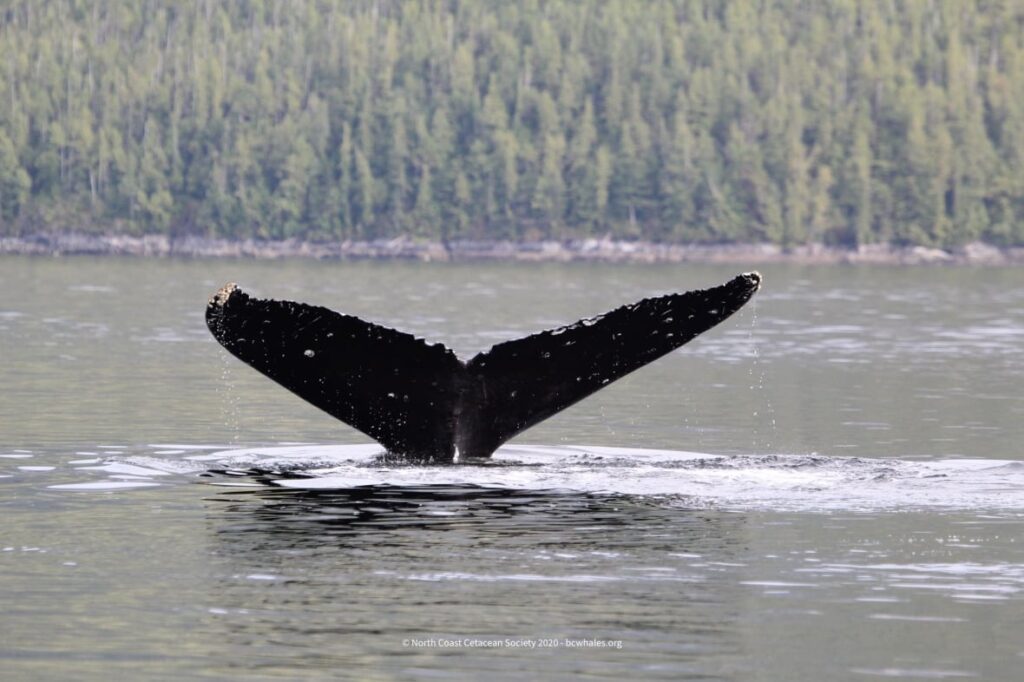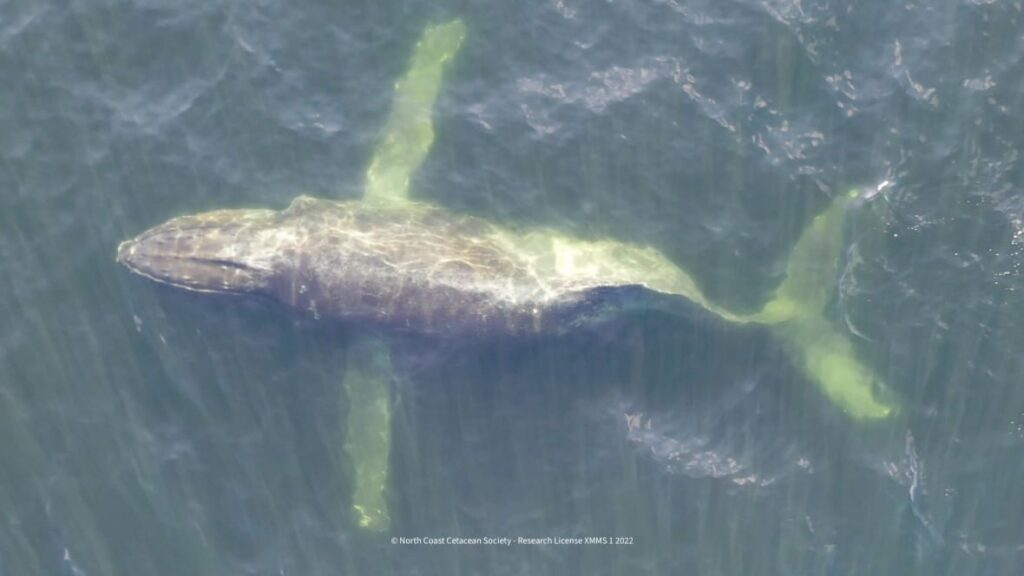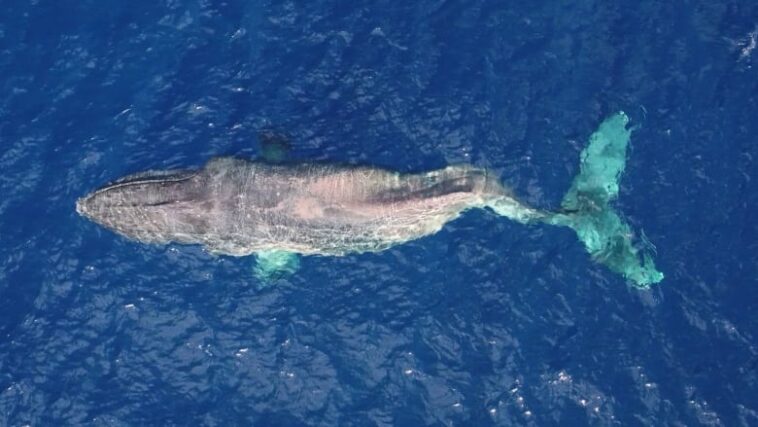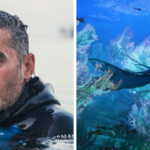A humpback whale from British Columbia, known as “Moon the Whale”, has made her last journey from the feeding grounds off B.C.’s north coast to the breeding grounds of Hawaii, more than 4,800 km away.
Moon was first discovered to have a paralyzed tail when she was spotted in northern B.C. waters on September 7. After nearly three months, she was tracked again in December in the waters off Hawaii, looking thin and pink, indicative of a heavy infestation of whale lice.

Moon’s Injury Was Likely Caused By Humans
The paralysis in her tail, according to researchers, is likely due to a boat strike and because of her emaciated state, she won’t be able to make the journey back to B.C. feeding grounds and will spend her last days in the waters off Hawaii.
“This is the stark reality of a vessel strike, and it speaks to the extended suffering that whales can endure following an incident,” said Janie Wray from the North Coast Cetacean Society in a release. “It also speaks to their instinct and culture: the lengths whales will go to follow patterns of behaviour.”
Jackie Hildering, an educator and researcher with the Marine Education and Research Society told West Coast Now that, although this is a sad story, there is much to be learned from Moon’s situation.
Epic Journey To Hawaii At Slow Speed
Moon was first spotted by whale watchers in 2009 when she was identified as part of a group of humpbacks off the north coast. But it wasn’t until last year that researchers noticed something was wrong with Moon. As they observed her they realized her tail seemed to be paralyzed, in the shape of an ‘S’, which made it difficult to swim and submerge.
Due to her paralyzed tail, Moon most likely traveled to Hawaii at a slow pace, about five kilometers an hour, unable to submerge for long periods of time, using only her pectoral fins as her only thrust.
“We have known Moon for many years, often seen in the late fall around the feeding grounds of Northern B.C.,” Wray wrote. “We were thrilled to see her with a calf in 2020, passing on this tradition of migration between feeding and breeding grounds. In her current condition, she will not survive to make the return journey.”
Vessel Strikes On Whales Are Avoidable

Although Moon’s situation is dire, there is still hope for other injured animals like her. Recently a juvenile humpback whale was found entangled in fishing gear off of Vancouver Island and was successfully freed after an extensive rescue operation led by emergency responders from across Canada.
“We will never truly understand the strength it took for Moon to take on what is regrettably her last journey,” Wray wrote. “But it is on us to respect such tenacity within another species and recognize that vessel strikes lead to a devastating end.”
To reduce vessel strikes we encourage all boaters to be aware of their local laws and best practices. For Canadian mariners, resources are available at www.seeablowgoslow.org. You can report any witnessed incidences of concern surrounding ship strikes or entanglement to the DFO Incident Reporting Line at 1-800-465-4336, [email protected], or on VHF Channel 16. Mortally Injured By A Boat Strike, This Whale Swam 4,800 km From B.C. To Hawaii Without The Use of Her Tail




